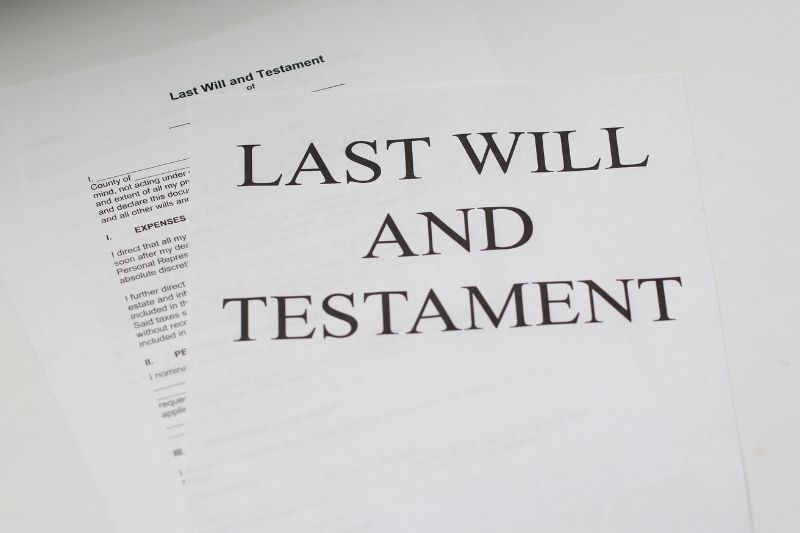No products in the cart.
7 Things Every Executor of the Will Should Know

Being named an executor of the will (or a personal representative) is a great honor, which also comes with great responsibilities. The primary role of an executor is to ensure that all of the assets of a deceased person are distributed according to their wishes. This process can be both emotionally and practically challenging, as it entails additional duties and can take several months, if not longer.
And if you have never been named an executor before, one of the first things to do is find the answers to questions like “What is probate in real estate?” or “Can I probate the will on my own?” and more.
However, apart from applying for probate and paying off the deceased’s debts, there are some other things you should be aware of in advance to make the process run as smoothly as possible. Read on to learn more about which duties the role of an executor will imply for you.
Paying off the Debts
The first and foremost duty of an executor is to pay off all the debts that are owed by the deceased person. These could be debts that were incurred before their death, or they could be debts that were incurred because of their death. The latter kind of debts includes funeral expenses, medical bills, and property taxes. Among some other things, the executor will have to gather all of the paperwork related to the debt and deal with the creditors.
Debts will have to be paid off before any assets are distributed. This means that you will have to make sure to save enough money to cover all of the expenses before you start distributing assets.
Determining Appraisals
Another thing an executor has to do is determine the value of the property that the deceased owned. This task can be quite tricky, as it is important to make sure that you don’t undervalue or overvalue anything. If you undervalue property, it could end up in the hands of a person who doesn’t deserve it, while overvaluing could lead to unfair distribution.
In order to properly perform this task, you need to take into account several factors. For example, if the assets are subject to depreciation, they should be adjusted for that purpose. You should also consider that different parts of the property might have different costs associated with them, so they should be appraised separately.
Distributing Assets
After all of the debts have been paid off and appraisals have been performed, it is time to distribute assets according to the wishes of the deceased person. This is perhaps one of the most challenging things to do as an executor, as there are often many people who are affected by the distribution. If you are not familiar with your duties, it might be difficult to figure out how to divide everything fairly.
However, you should know that you don’t have a lot of choices when it comes to making decisions in this regard. Your only choices are to follow the instructions left in a will or to make decisions in accordance with state law.
Complying With State Laws
Executors are required to comply with state laws regarding probate real estate. They must make sure that all of the property is divided according to the instructions left in a will, without violating laws that prohibit certain kinds of distributions or require specific types of distribution. For instance, in some states, a house cannot be sold until all of the heirs have reached a certain age. In such cases, it is up to an executor to find another way of disbursing assets among heirs who have not yet reached this age.
Applying for Probate
One of the final steps in the process is applying for probate in real estate. In order to do this, you will have to file a petition with the court and provide it with all of the required information. This includes the names of people who are entitled to inherit property, as well as the value of the property. Once the application is approved, the executor must submit all of the documents, including the will, appraisals, and other legal forms that were required during the probate process.
Administering the Estate
The process of administering the estate is not over after you have submitted all of the paperwork to the court. Instead, it continues until the final distribution has been made. This means that you will have to provide the court with a report on each proceeding you make or the decision you make, which will then be recorded in a journal of the court. The report should include a statement that explains why this particular decision was made, as well as the date on which it was made and any other important information.
In addition, you will have to manage all of the property for which you are responsible in accordance with state law, including property that is in your possession. You will also have to make sure that heirs receive their inheritance at appropriate times while dealing with any disputes among them.
Filing Final Accounts
Filing final accounts after probate real estate is completed is one of the most important things an executor has to do. In order to do this, you will have to prepare an account of what has happened during the process. In this account, you will have to list all of the assets that were distributed, as well as any income or expenses related to these assets. You will also have to explain why you made some decisions and how those decisions were determined. Finally, an executor must submit this account to the court, along with all of the remaining documents.
Conclusion
Being named an executor can be quite challenging, but it can also be very rewarding, as it gives you the chance to honor the wishes of a loved one who has passed away and make sure that their assets are distributed among those who were meant to receive them. However, before you accept the role, you need to be aware of all of your duties and responsibilities. Hopefully, now you know more about the responsibilities that come with being an executor of the will or a personal representative.










Leave a Reply